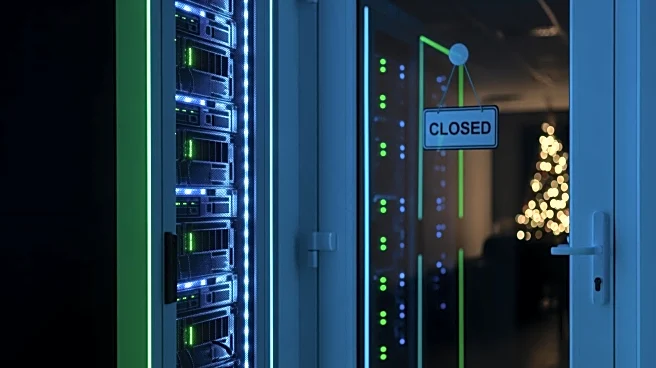Rapid Read • 8 min read
AeroFarms, a Virginia-based indoor vertical farming company, has announced the availability of its greens products at Harris Teeter grocery stores. The products, including 'Micro Broccoli,' 'Rainbow Mix,' 'Micro Kale,' and 'Super Mix,' are now accessible at all Harris Teeter locations across seven southeastern states and the District of Columbia. This expansion includes 20 stores within a 90-mile radius of AeroFarms' facility in Danville, Virginia. The company emphasizes that indoor farming offers year-round access to greens, longer shelf lives, and reduced food loss compared to traditional farming methods in California or Arizona. According to Dane Almassy, AeroFarms' Senior Vice President of Sales and Marketing, the proximity of their farm to Harris Teeter's distribution centers ensures longer shelf life and shorter transportation routes, benefiting consumers with fresher products.
AD
The introduction of AeroFarms' products at Harris Teeter represents a significant shift towards sustainable and efficient food production methods. Indoor farming reduces dependency on traditional agricultural practices, which are often subject to climate variability and longer supply chains. This move could lead to increased consumer access to fresh produce, potentially reducing food waste and enhancing food security. The partnership also highlights the growing trend of grocery chains adopting innovative farming solutions to meet consumer demand for fresh and sustainable products. As indoor farming technology advances, it may play a crucial role in reshaping the agricultural landscape and supply chain dynamics in the U.S.
As AeroFarms continues to expand its reach, other grocery chains may follow suit, integrating indoor farming products into their offerings. This could lead to increased investment in vertical farming technologies and infrastructure, further driving innovation in the sector. Additionally, consumer response to these products will likely influence future market strategies and product development. Stakeholders, including policymakers and industry leaders, may need to consider regulatory frameworks and support mechanisms to facilitate the growth of indoor farming as a viable alternative to traditional agriculture.
The adoption of indoor farming by major grocery chains like Harris Teeter may have broader implications for urban planning and environmental sustainability. As cities look to reduce their carbon footprint, integrating vertical farms into urban landscapes could offer a solution for local food production, reducing transportation emissions and promoting green spaces. Furthermore, this trend may encourage educational initiatives focused on sustainable agriculture, inspiring future generations to pursue careers in innovative farming technologies.
AD
More Stories You Might Enjoy










